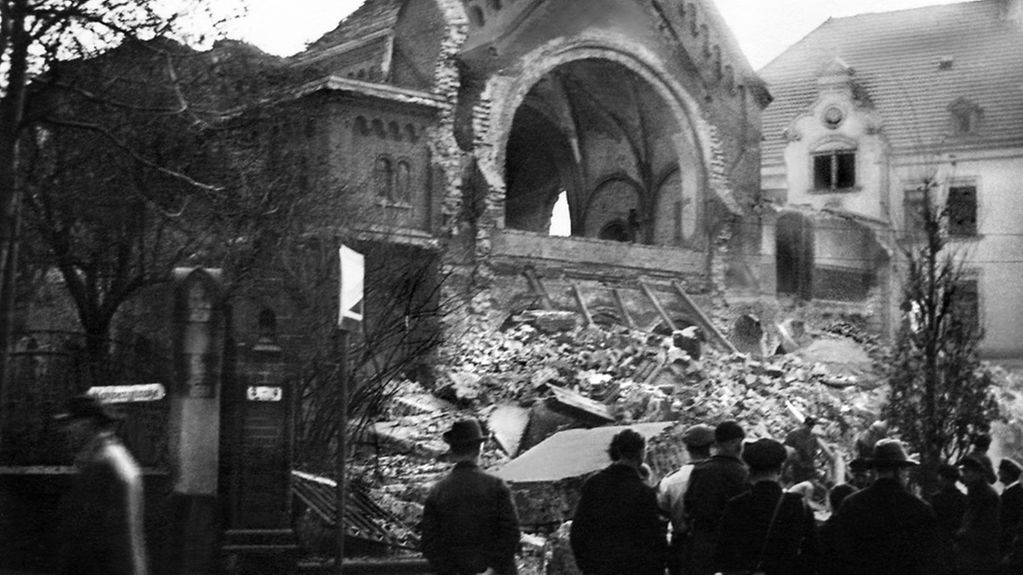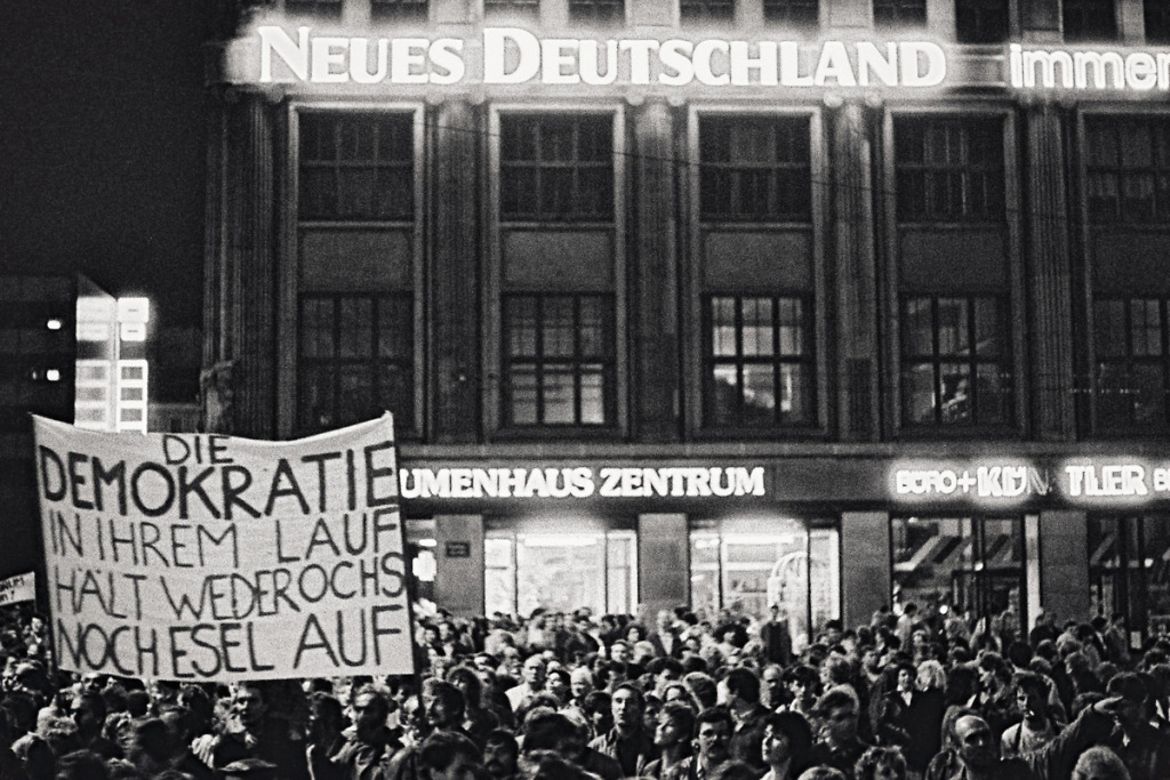9 November
9 November 1938 is synonymous with the darkest chapter in Germany’s history. The same day, 9 November, in 1989 was the happiest day in our recent history. The German government supports and promotes the commemoration of both – the anti-Jewish pogroms of the "Night of Broken Glass" and the fall of the Berlin Wall.
4 min reading time

9 November 1938 - one of the blackest days in German history
Photo: Bundesregierung
Speaking at an event to mark the 75th anniversary of the anti-Jewish pogrom, Chancellor Angela Merkel declared that this was one of the blackest days in German history. Unfortunately the developments in German history subsequently became even more dramatic with the Holocaust and the break with civilisation, she said in her video podcast. The 9 November 1938 reminds us, "that we must always be aware of our past so that we can shape the future responsibly".
Yet in 1989, the 9 November was a day of great joy and hope, declared the Chancellor. The fall of the Berlin Wall is proof that democracy and the rule of law can be achieved peacefully. "That gives us hope for the future," said Angela Merkel.
Podcast
Keeping memories alive
The Chancellor expressly thanked those who were themselves victims, eye-witnesses of the persecution of Jews. "That these people who have experienced such terrible things, who were in concentration camps, who were persecuted, are prepared to talk to us Germans again is not something that can be taken for granted by any means." We must make provisions for times to come when we no longer have any eye-witnesses of these atrocities. That is why we have a "comprehensive culture of commemoration ". This includes not only places, like the Memorial to the Murdered Jews of Europe, but also the "Stolpersteine" initiative, which she finds excellent. (The "Stolpersteine", literally stumbling blocks, are small brass plaques inserted in the pavement outside the last homes of victims of the National Socialist regime. The plaque bears the name, age and fate of the victim. They are a constant reminder to all pedestrians of the individual fates that lie behind the statistics.)
To keep memories alive, federal and state governments also have many programmes that target extremism and anti-Semitism, said Angela Merkel. "We also need everybody in the country to have the courage to stand up and declare that we will not tolerate anti-Semitism." The Chancellor sees it as "a very positive experience that today we once again have a thriving, vibrant Jewish community in Germany ". The German government supports this community.
"Immediately! Without delay!"
Many people will still remember the words uttered on 9 November by Günter Schabowski, member of the Politburo of the German Democratic Republic, when asked when the new liberalised travel regulations he had just announced would come into force - "Immediately! Without delay!" His response unleashed a tidal wave as thousands of people in East Berlin descended on the border crossing points.
And the sheer mass of people brought down the Wall. Very few people had expected that the much-hated, degrading construction would so quickly be relegated to the history books. The leaders of East Germany could only watch helplessly.
The Wall was open – 28 years, 2 months and 28 days after it was built. With the fall of the Berlin Wall the entire border between the two German states opened again. The road was free for German reunification.
Germany is growing together
Twenty-four years on, the living conditions in East and West have become much more comparable. Last year gross domestic product per capita in the states of former East Germany and Berlin rose by 0.5 per cent over the 2011 figures. The numbers of those in employment and paying social insurance contributions continued to rise in 2012. Since 2006 this figure has risen by a total of some 450,000. It is encouraging to note that this trend can be seen in practically all states and almost every branch. The migration flows from East to West have more or less dried up.
For the second time since reunification, Germany recorded a general structural government surplus in 2012. The states in the East helped achieve this result with their budget surpluses. Yet there is still a tangible disparity between East and West in terms of economic strength. Unemployment remains higher and wages lower in the former German Democratic Republic.
Funds from the Solidarity Pact II will support the new federal states in the East until 2019, helping them to bring living standards into line with those in the West. Many other promotion programmes of the German government also support the development of structurally weak regions, in both West and East.
















